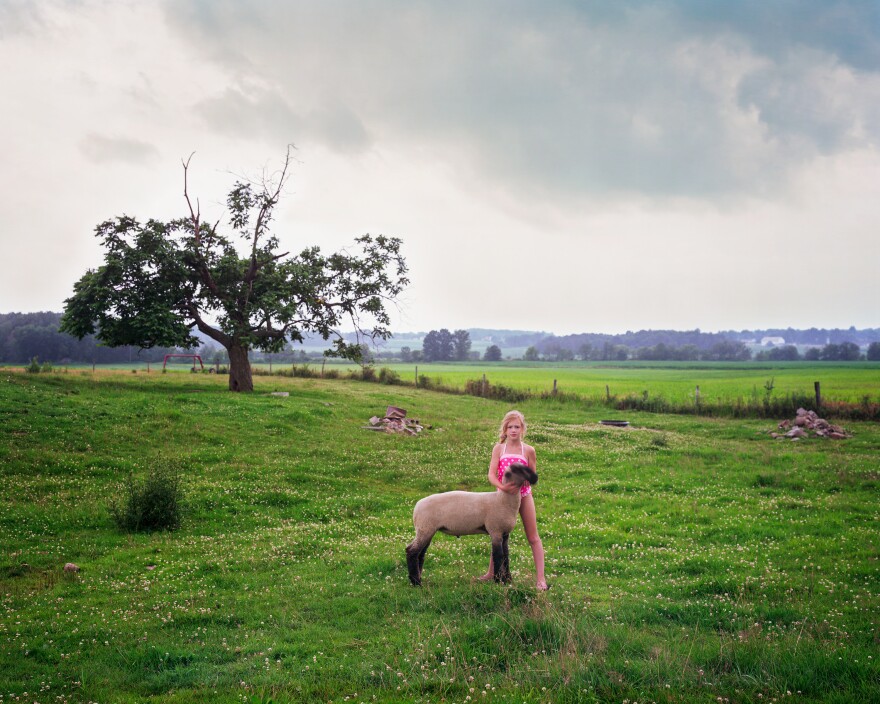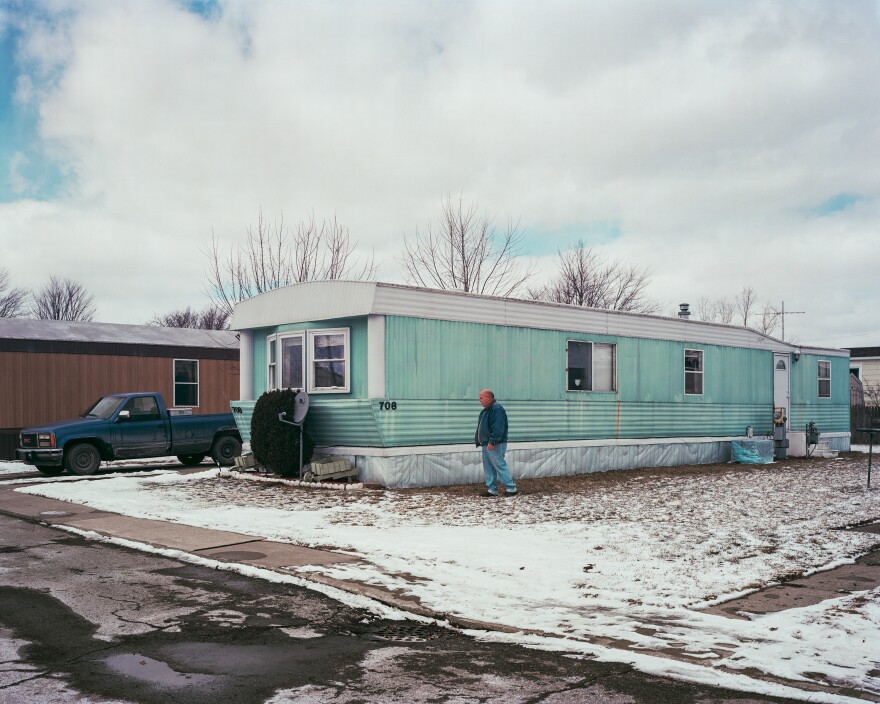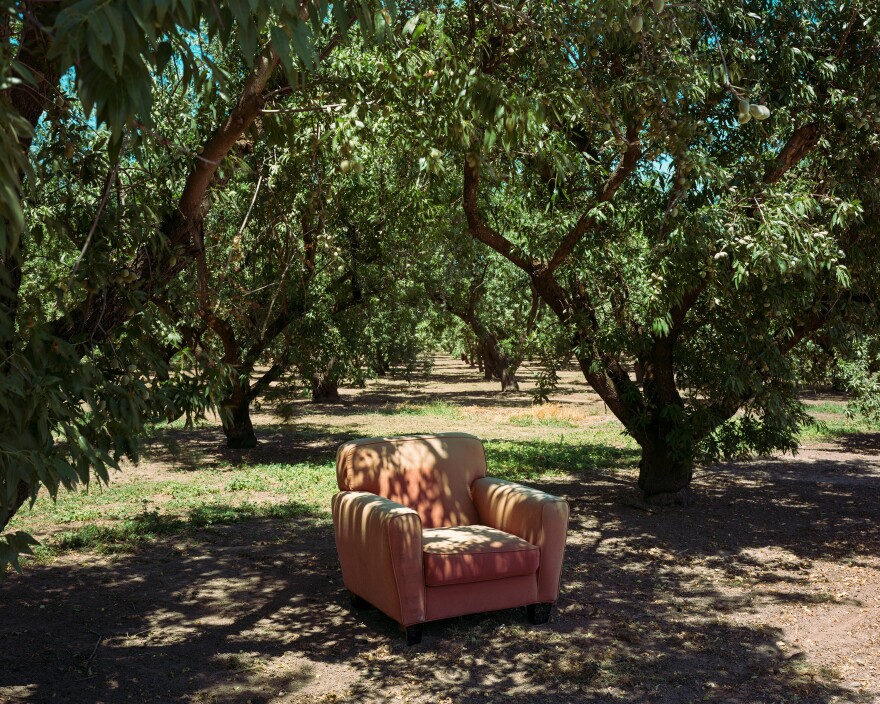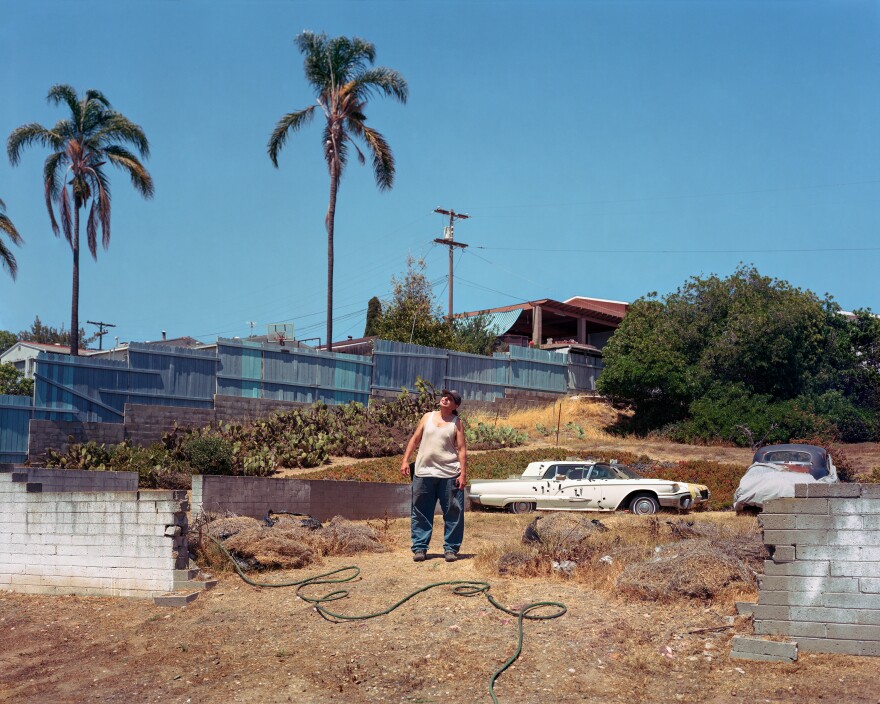The American dream takes on new meaning in photographer Eliot Dudik's series Paradise Road.
Through the images, Dudik takes the viewer on a journey across the U.S., from empty grasslands to suburban lawns, from dirt byways to mountain valleys, all along different roads named Paradise Road. Each photograph unveils a different view of a potential paradise through expansive landscapes and stoic portraits of people he meets along the way.

The ongoing project began in 2013, when Dudik set out with a question of what paradise and the American dream really look like, five years after millions of Americans lost their jobs, homes and savings in the 2008 financial crisis.
Dudik was in the process of leaving a job and had just ended a long-term relationship. Not sure of what was coming next, he felt overwhelmed by the unknown. "Typical life angst for a 30-year-old, I think," he says. He started thinking about the idea of the American dream: that anyone can achieve prosperity if they work hard enough.
He wondered: Were others trying to achieve their own version of the American dream, as he was?

"Personally, this dream seems to continually shift as new desires, obstacles, and realities become apparent," he writes in an email correspondence. "I'm far from alone in this struggle to capture an elusive, subjective idea, but I'm interested in exploring our collectively constructed desideratum."
"Privilege and access certainly play a major role in the construction and achievement of one's goals," he adds.

He asks in his artist statement: "Does [Paradise] really exist?" The viewer must grapple with that question while facing the sometimes beautiful, sometimes decaying landscapes and while confronting the direct stares and honest depictions of the people along the way.
Dudik's numerous carefully mapped-out trips across the U.S., one of which covered 17,000 miles, have allowed him to encounter a diversity of landscapes and people. By keeping the project focused only on roads named Paradise, he constructed it as a rough survey of the topography of rural America. "Roads tend to be rural, and many of them took me shockingly far from any trace of civilization," he says.

The large format photographs call to mind the long legacy of viewing the American landscape and its people through photography, as seen before in the work of Dorothea Lang and Robert Frank, but bring a new dimension that considers the hopes of the American people.

On each road he visits, Dudik takes time to explore the scene that he finds, considering how that particular location might reveal some sense of paradise before he takes one 8-by-10-inch film photograph. "On these long road trips, I'm stuck with whatever weather might be happening when I arrive, and I unfortunately don't have the time or resources to wait or come back when it's better," he says.

He likens the limits on his project — the cost of large format film, travel and the time needed — to the limits on many people's ambitions. "So I often find myself having to just make the best of it, which is perhaps a good metaphor for our experience with the American dream," Dudik adds.

As the project progressed, he increased the amount of time he spent in each location to get a deeper feel for the area before making a photograph. He found more success in this approach, as well as a more human connection by spending many hours with people he met and even being invited to eat and sleep in people's homes.

"Through the project, I have been welcomed into communities and neighborhoods across the nation, and I am grateful for the opportunity to visit places I never would have otherwise, meet incredible people, and learn about the United States," Dudik says.

Although the project began in the years after the 2008 recession, Dudik continues to explore how the economy's swings affect the average American's dreams. "In many ways, the United States is a changed landscape since then; but in far too many ways, it hasn't changed at all," he says.

As the coronavirus pandemic continues to take its toll on the U.S., Dudik plans to carry on with Paradise Road through a whole new recession. "As we continually find ourselves in scenarios that seemingly couldn't possibly get any worse, it's all the more critical to hold onto the steady tenets of the American Dream: hope, rebirth and resiliency," he says.
Copyright 2023 NPR. To see more, visit https://www.npr.org.



